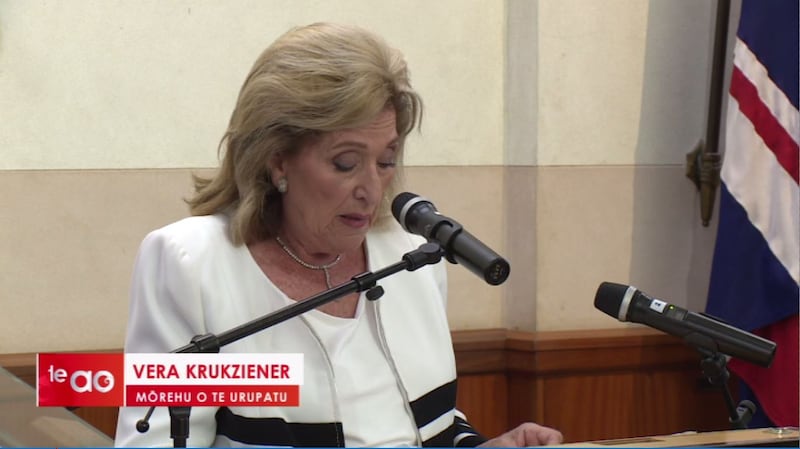The Holocaust saw more than 11 million lives lost at the hands of German forces in World War II.
To honour those who passed, those who survived and New Zealand's contribution to the war effort, a remembrance day was held at the Auckland War Memorial Museum on Thursday - which was also the International Day of Commemoration in memory of the victims of the Holocaust.
Among people gathered at the museum, was a survivor of the holocaust, and a daughter of a late 28th Māori Battalion soldier.

Born in Budapest, Hungary, Vera Krukziener, a survivor of the holocaust, managed to escape the German forces with her parents.
“I was 6-years-old when German forces entered and occupied my hometown. Today, I’d like to tell you about the people in my life whose acts, bravery and resistance saved my life against the Nazis,” she recalls.
Private Tahu Pōtiki Hopkinson
Risiera di San Sabba was a concentration camp in Trieste in northern Italy. Gaye Stanley’s late father, Private Tahu Pōtiki Hopkinson, was a member of the 28th Māori Battalion and served in D Company’s 18 Platoon. In 1994 he gave a heartbreaking account of what he found.
Stanley, of Ngāi Tahu, Ngāti Mutunga and Ngāti Toa, says her father, who died in 2013, was very proud to fight in the Māori Battalion but rarely spoke about his personal experience of war.

“My father and his fellow Ngāi Tahu comrades in arms from 18 platoon were part of the contingent who liberated Risiera di San Sabba in Trieste in May 1945.”
“Not being able to let people in weighed heavily on my father and the other soldiers because he realised that the Jewish customs were similar to Māori. They wished they could have done more to help. To go out and be with the whānau pani (bereaved families).”
Chief of Army, Major General Boswell, spoke about New Zealand's commitment as an allied force and the impact of war on soldiers.
“There are some quite horrific descriptions of our soldiers as they closed with the concentration camps, and some of the experiences they had and the horrors they’ve witnessed. And we can only imagine how traumatic that would have been at that time and the challenges they’ve had in dealing with that in the years after the war,” Major General Boswell says.
After returning home from the war, Private Hopkinson married his wife Joy and became a devoted father.
Stanley recalls one of her fondest memories of her father.
“He insisted on coming to my first day of high school at St Margaret’s College, that he wanted to be with us. He was incredibly proud of his children, of his family and that’s my proudest memory of him,” she says.


